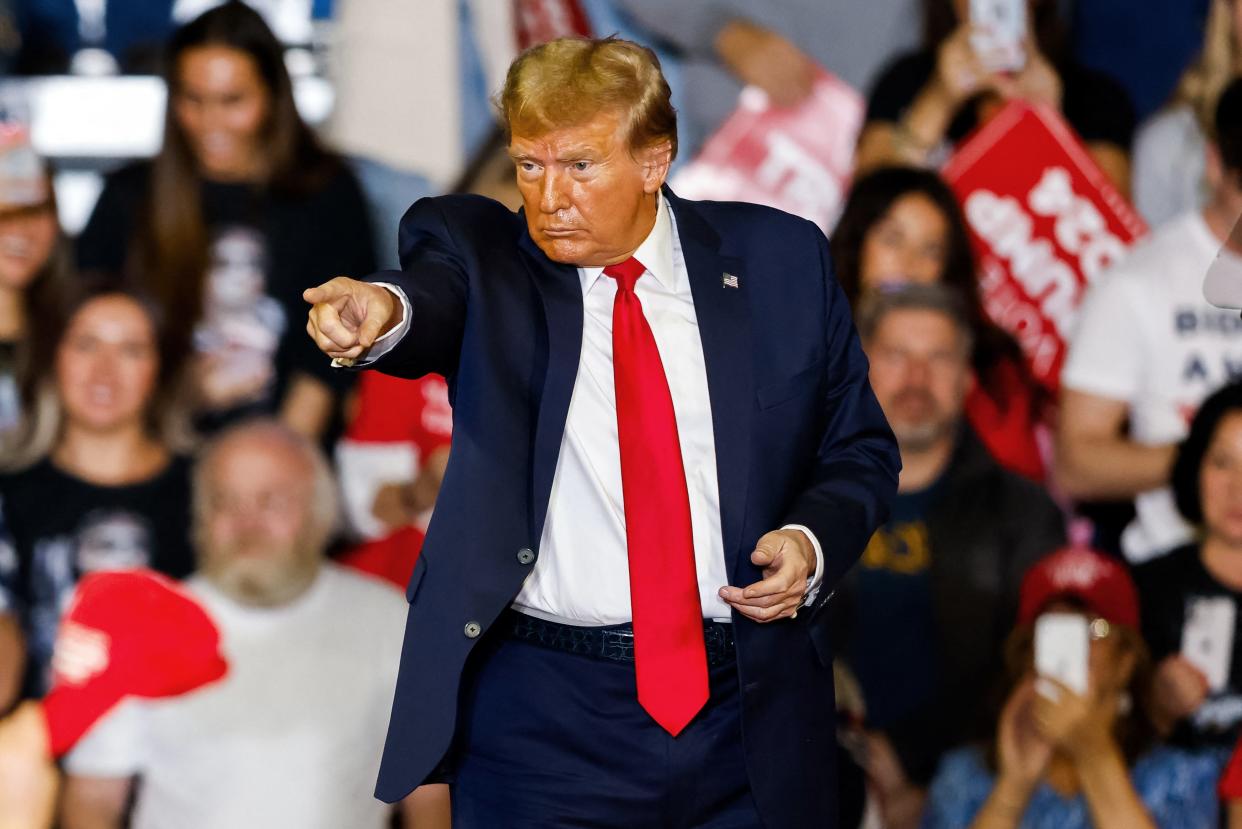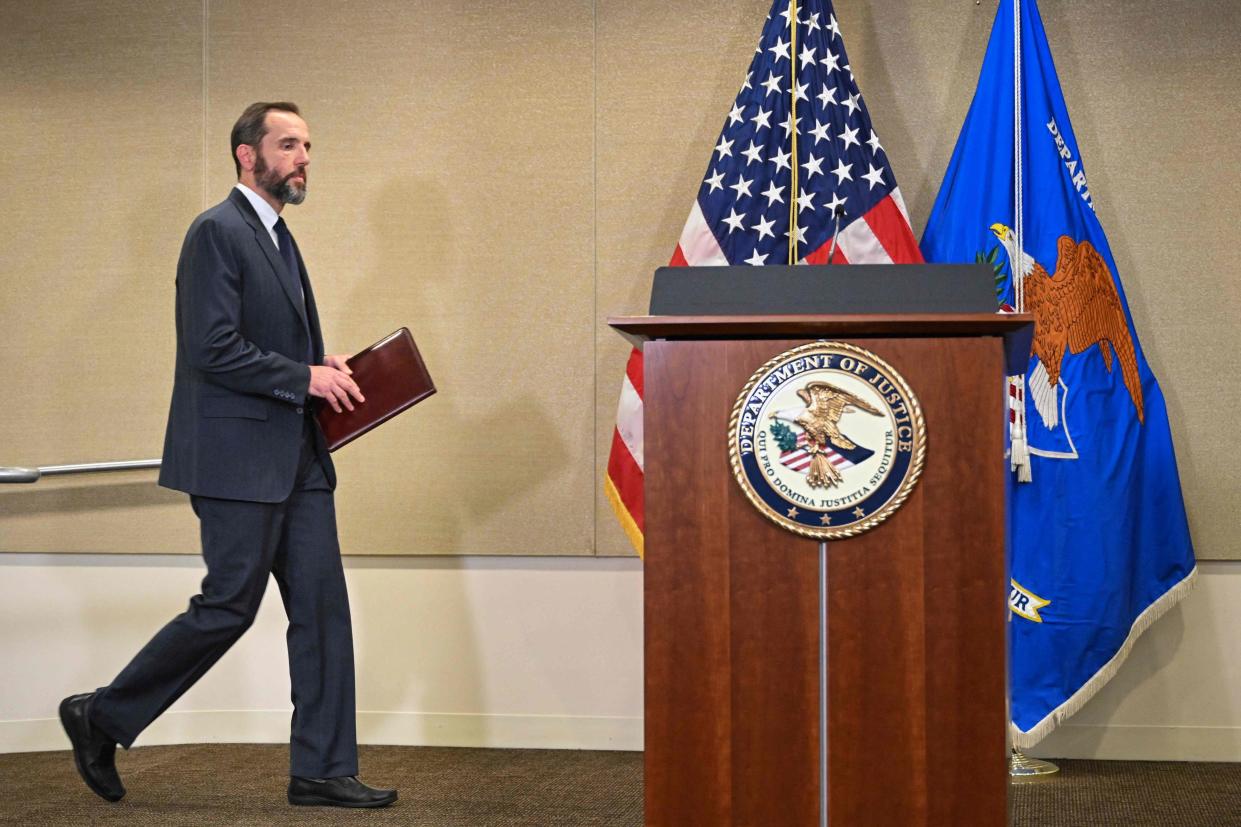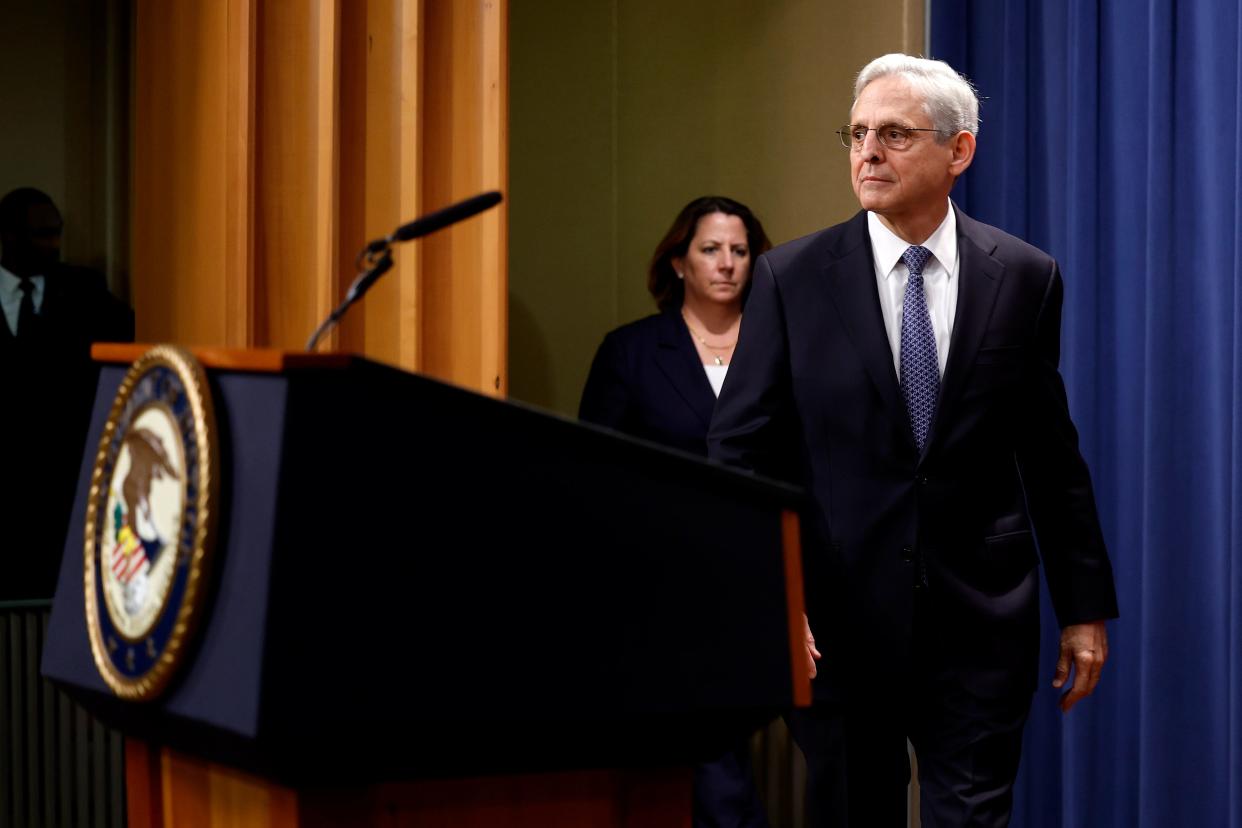Donald Trump urges judge to dismiss charges over hoarding classified documents at Mar-a-Lago
Former President Donald Trump claimed immunity Thursday in urging a federal judge to dismiss charges he hoarded classified documents at Mar-a-Lago after leaving the White House.
Attorneys for Trump are arguing that he used his authority while president to designate the records as personal, which presidents are allowed to keep after leaving office. The series of filings are largely a rehash of arguments Trump has made − and had rejected so far − at other stages in the criminal cases against him. Justice Department special counsel Jack Smith has until Feb. 27 to respond.
Trump’s lawyers contend that disputes under the Presidential Records Act over whether personal records must be returned to the government is a civil dispute, not criminal. And Trump contends he is immune from prosecution because he designated the records in classified folders as personal while he was still president, even though there is no documentation of the change.
The Supreme Court is already considering whether to hear Trump's legal contention that courts are unable to judge presidents, as Trump argued in his election-interference case.
In a series of filings Thursday, Trump lawyers Todd Blanche and Christopher Kise also asked U.S. District Judge Aileen Cannon for hearings over immunity and alleged prosecutorial misconduct. Scheduling the hearings could jeopardize holding the trial, which is tentatively scheduled for May 20, until after the November election − a Trump priority as he campaigns as the likely Republican nominee for president.
Here is what we know about the case:

What charges does Trump face?
Trump faces 41 charges of keeping and hiding documents with classified markings at his Mar-a-Lago estate. More than 300 classified documents were recovered from Mar-a-Lago more than a year after Trump left the White House, most under subpoena in June 2022 or during an FBI search in August 2022.
Trump faces charges of willful retention of national defense information along with counts such as conspiracy to obstruct justice, withholding a document, corruptly concealing a document and making false statements.
"The classified documents Trump stored in his boxes included information regarding defense and weapons capabilities of both the United States and foreign countries; United States nuclear programs; potential vulnerabilities of the United States and its allies to military attack; and plans for possible retaliation in response to a foreign attack," the indictment said. "The unauthorized disclosure of these classified documents could put at risk the national security of the United States, foreign relations, the safety of the United States military, and human sources and the continued viability of sensitive intelligence collection methods."
Trump claims immunity from prosecution, which Supreme Court is considering in election interference case
Trump’s lawyers contend he is immune from prosecution because presidents can never be prosecuted criminally unless the House has first impeached and the Senate convicted him. His lawyer acknowledged at an appeals hearing this would mean a president could kill his political rivals with potentially no consequences.
“Presidential immunity from criminal prosecution for official acts draws support directly from the text of the Constitution, as the Impeachment Judgment Clause states that a president cannot be criminally prosecuted unless he is first impeached and convicted by the U.S. Senate,” Trump’s lawyers argued in their filing.
The D.C. Circuit Court of Appeals ruled that Trump can be prosecuted on charges he tried to steal the 2020 election. The Supreme Court is considering whether to hear the case and whether to postpone the trial during the appeals.
Prosecutors previously called the argument about presidential immunity in the documents case "frivolous" because the alleged crimes of moving the documents to Mar-a-Lago and withholding them from investigations all happened after Trump left the White House.
Trump argues Espionage Act is too vague to prosecute
Trump’s lawyers contend the statute in the classified documents case is unconstitutionally vague.
The Espionage Act prohibits “unauthorized possession” of any document “relating to the national defense” that a person “has reason to believe could be used to the injury of the United States or to the advantage of any foreign nation” and “willfully retains” it.
Those phrases in the law “are undoubtedly the most confusing and complex of all the federal espionage statutes,” Trump’s lawyers contend.
But spies have been charged for decades under the statute and courts have upheld the convictions. Prosecutors contend if secrets from the documents were revealed, it could harm the national defense and risk the lives of U.S. agents.

Trump contends he designated documents marked classified to personal before leaving White House
Under the Presidential Records Act, presidents turn over their official records to the National Archives and Records Administration when their term ends.
But Trump has argued repeatedly that he could take records with him after leaving the White House, despite the Presidential Records Act giving ownership to the National Archives and Records Administration. Trump also argued he declassified them, despite the lack of documentation for his assertion.
“I have the absolute right to do whatever I want with them,” Trump told a CNN town hall on May 10, 2023.
Trump contends that courts can’t review his decisions over what records were personal, which he could keep, and which were official, which he would have to give the National Archives. The Presidential Records Act makes disputes about the records subject to civil litigation and “forecloses criminal investigations.”

Trump seeks hearings over immunity claim, allege prosecutorial misconduct
Trump’s strategy from the start has been to postpone the trial tentatively scheduled for May 20 until after the presidential election, when voters could decide his fate. As president he could potentially end the federal trials on election interference and classified documents or pardon himself.
If the case is to proceed, Trump’s lawyers asked for hearings on his claims of immunity, vindictive prosecution and prosecutorial misconduct. The misconduct allegations allege Smith coordinated with President Joe Biden, the National Archives and the FBI to prosecute a political opponent.
Attorney General Merrick Garland has denied a political motivation for the charges and said Smith is prosecuting the cases independently.
This article originally appeared on USA TODAY: Donald Trump urges judge to dismiss charges in classified records case
